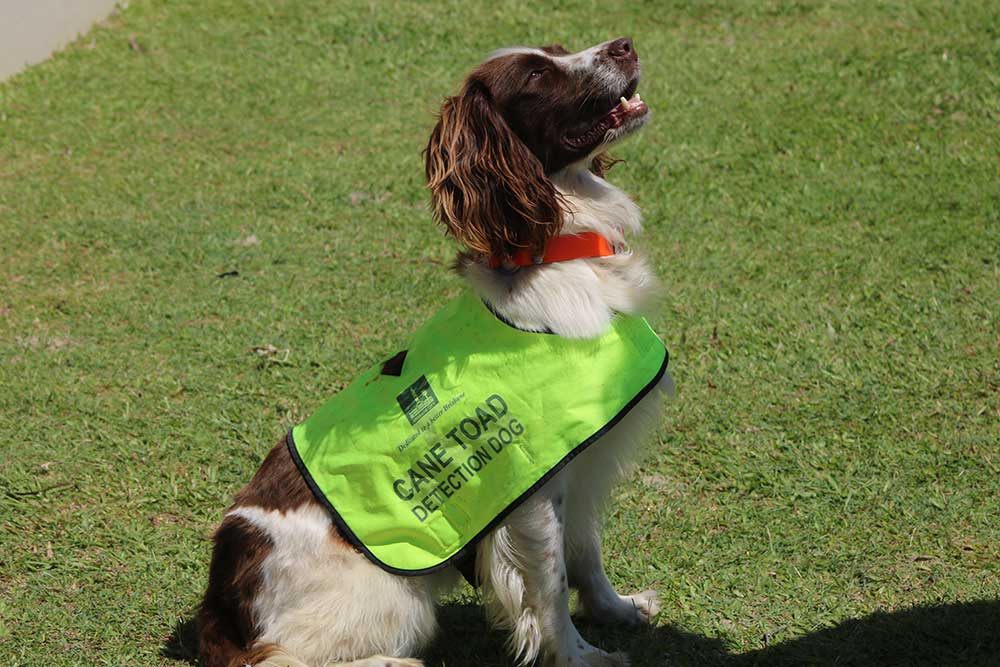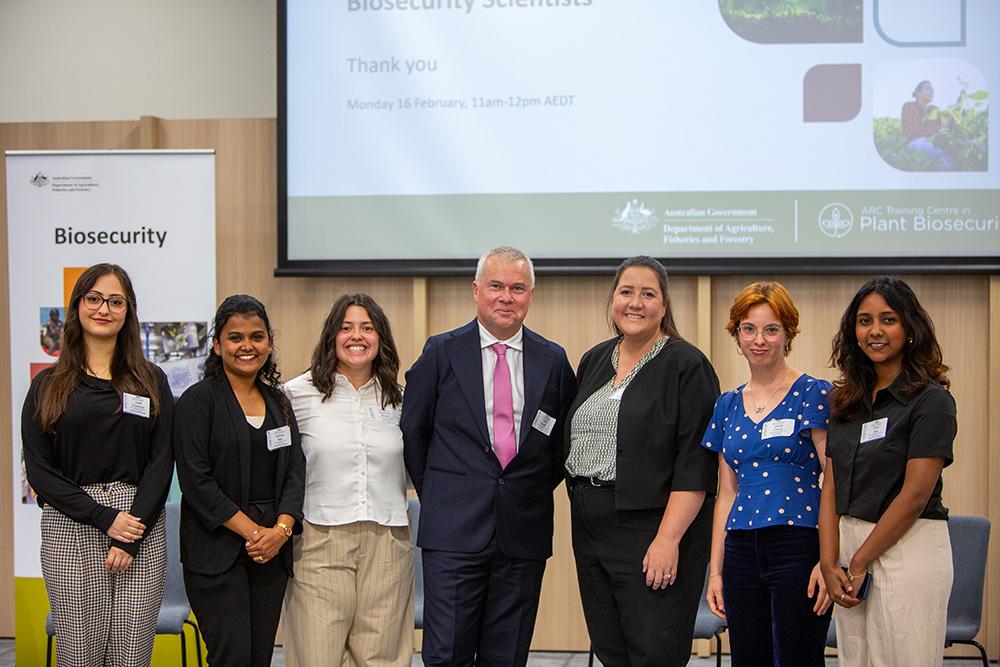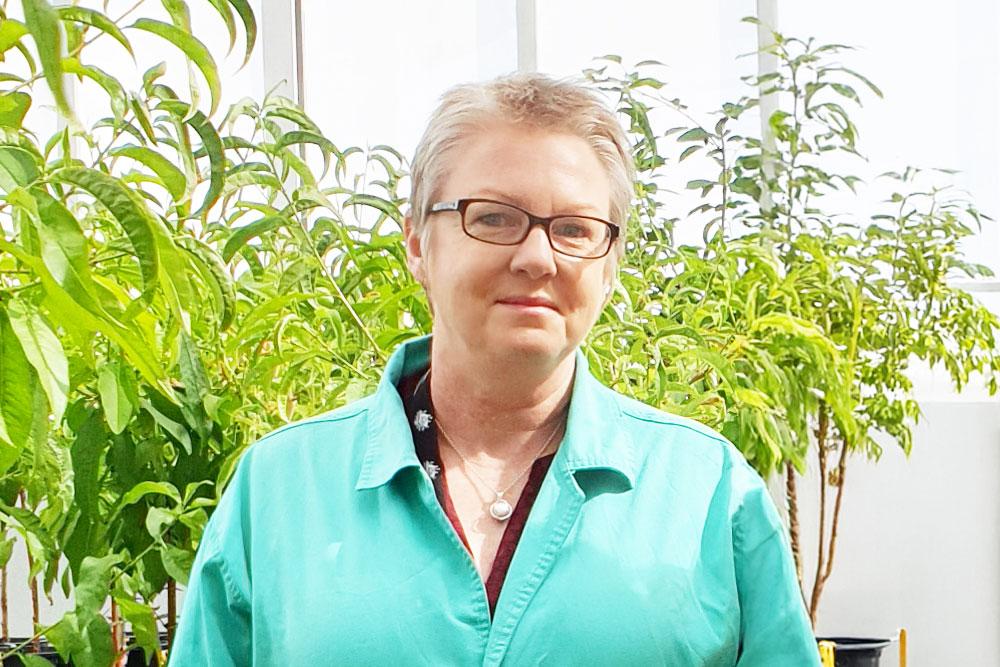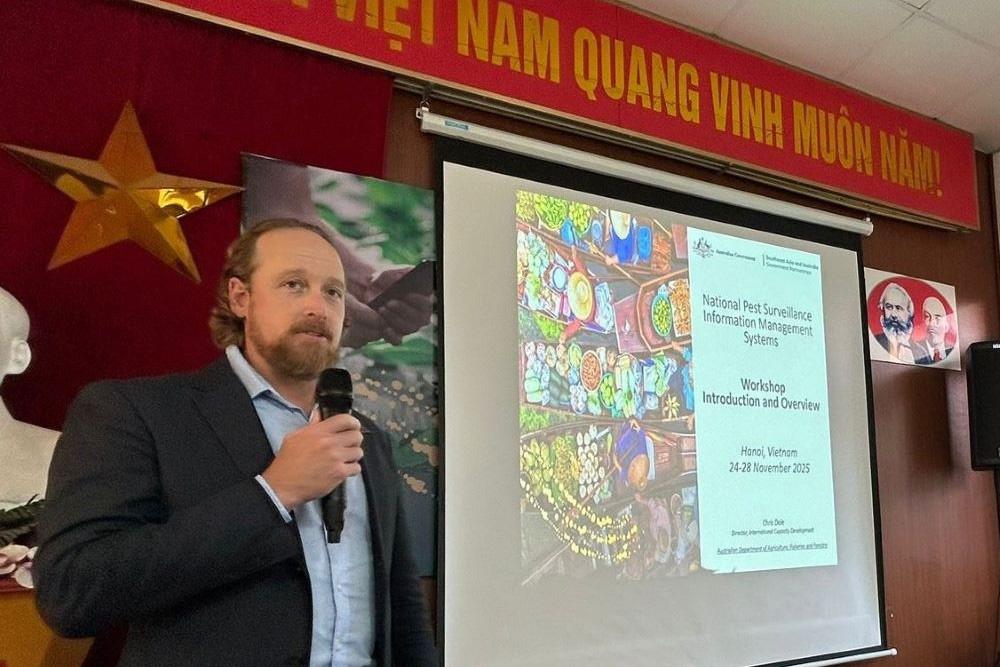Brisbane City Council – Keep Moreton Island (Mulgumpin) Cane Toad Free
Keeping Moreton Island Cane Toad Free is no easy task. But that hasn’t stopped Brisbane City Council and their partners from doing just that.
More than 170,000 people visit the island via boat or barge each year, increasing the risk of a cane toad incursion. As no cane toads were established or breeding on the island, the program focused on preventing incursions and asset protection.
Moreton Island is the third largest sand island in the world and is located 40 km north-east of Brisbane. Most of the island is within Moreton Bay Ramsar Site, which is recognised for its important wetlands, salt marsh, tidal flats, sandy beaches and freshwater lakes. The island supports a variety of species adapted to these unique conditions, including iconic marine animals, terrestrial mammal species, reptiles, amphibians and birds.
Separation from the mainland has preserved the integrity of Moreton Island. However, the greatest threat to the island’s wildlife is the risk that cane toads will become established. On the mainland, cane toads are considered naturalised, and eradication is currently unfeasible. As cane toads are toxic at all life stages, they are a lethal threat to predators that mistake them for native frogs. Eggs and tadpoles are toxic to fish, and toadlets and adult toads are toxic to birds and reptiles.
Recognising that the most likely way cane toads will establish is via human assisted movement, Brisbane City Council developed an educational campaign targeting island visitors and via public engagement at Council events. The program encourages all island residents and visitors to be vigilant when unpacking their camping gear, building materials and other supplies transported from the mainland, and to support surveillance efforts when travelling around the island, improving the chance of detecting cane toads in remote locations.
Brisbane City Council established partnerships with the Queensland Parks and Wildlife Service, First Nations custodians, Tangalooma Island Resort, Moreton Island Adventures, local residents and the Moreton Island Protection Committee. These networks allowed them to maintain consistent messaging and increased their reach. The program has since expanded to explore and deploy innovations and tools to further reduce the risk posed by cane toads, with detection dogs undertaking surveys to sniff out these toxic pests and eDNA surveying of water bodies to look for microscopic presence of cane toads. Several technologies are on standby should an incursion response need to be activated.
The Quandamooka Peoples are First Nations custodians of the region, and in 2019, the Federal Court of Australia recognised their native title rights and interests over Moreton Island, which is now known by its traditional name, Mulgumpin, meaning place of sandhills. They have authorised and supported the continued delivery of the campaign to Keep Mulgumpin (Moreton Island) Cane Toad Free.
This program demonstrates how collaboration between residents, businesses, visitors, volunteers, Native Title custodians, and the state and local government can deliver positive biosecurity outcomes and protect iconic and genetically natural assets.
Keep Moreton Island Cane Toad Free was nominated by Rachel Cage from Brisbane City Council.
Watch a video about their work
Introduction
This is the accessible text transcript of a 2024 Australian Biosecurity Awards winner video featuring Brisbane City Council.
Transcript
Moreton Island is the third largest sand island in the world, and is located only 47km from the Brisbane CBD. Separation from the mainland has preserved the integrity of this natural asset. However, with more than 170,000 visitors making their way via boat or barge from the mainland each year, the greatest threat to biodiversity on the island is the risk that cane toads will establish.
On the mainland cane toads are considered naturalised. With numbers now surging to the point where with today's technology, eradication is currently unfeasible. Toxic at all life stages, cane toads are a lethal snack for predators of amphibians, with eggs and tadpoles being toxic to freshwater fish and toadlets, and adult toads being toxic to birds and reptiles. The risk posed by cane toads is recognised in a Commonwealth Threat Abatement Plan, which expressly lists Moreton Island, due to the potential impacts cane toads would have upon the genetically distinct Gould's goanna.
The Quandamooka Peoples are the First Nations Custodians of this region, and in 2019, the Federal Court recognised their Native Title rights over Moreton Island, which is now known as Mulgumpin, meaning place of sandhills. Brisbane City Council developed an educational campaign to keep Moreton Island cane toad free. However, it was recognised that working alone would be unlikely to prevent the transportation of cane toads to Mulgumpin.
Through collaboration with the Quandamooka Peoples, the Queensland Parks and Wildlife Service, Moreton Island Adventures, Tangalooma Island Resort, and residents and visitors to Mulgumpin, a surveillance program deploying a team of detection dogs has since been delivered. Through this program, more than 25 cane toads have been intercepted and removed so far. With each female capable of laying up to 30,000 eggs twice a year, this has prevented breeding, with eDNA analysis validating that Mulgumpin remains cane toad free.
Being the first local government in Australia to ever receive this National Biosecurity Award is an honour and we hope this program demonstrates that with innovation and collaboration, we can achieve the impossible.




